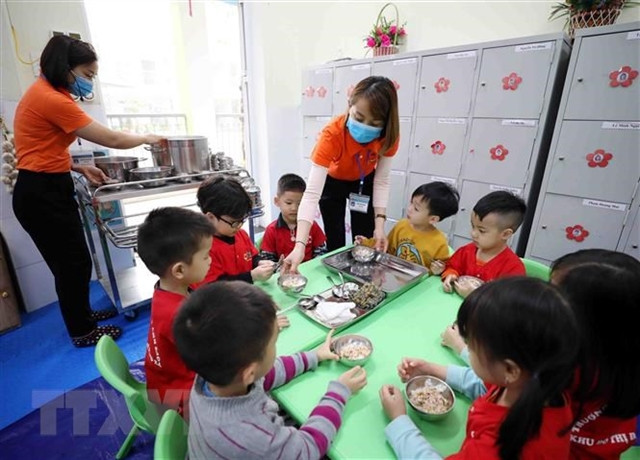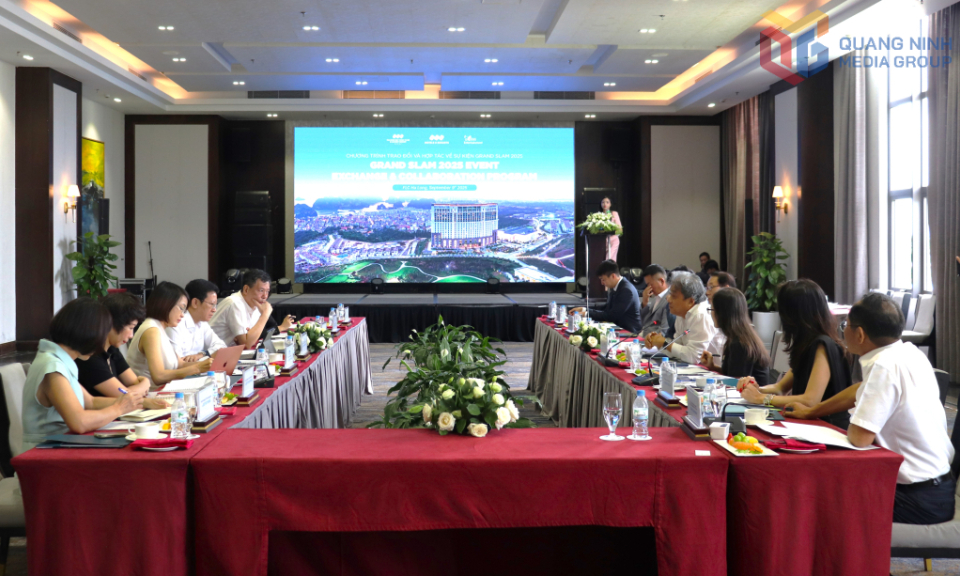Pre-school students have health checks, get access to English in new school year
The Ministry of Education and Training has asked all cities and provinces to give health check-ups and nutritional status assessments to all pre-school students.
They must also hold English language classes for them if possible in the new school year.
In the document sent to the departments of education and training in cities and provinces, the ministry has chalked out pre-school education tasks for this academic year.
The ministry has given priority to hygiene and safety for children in preschools. All schools must ensure that all children attending school have their health checked and nutritional status assessed following the growth chart of the World Health Organisation.
The ministry has asked pre-schools nationwide to step up education on personal hygiene practices for children.
Schools must coordinate with families to formulate proper nutrition and exercise regimens for children to prevent malnutrition and obesity. They have been asked to guide parents about a balanced and reasonable diet to help children develop well and prevent diseases.
The ministry has encouraged schools to renovate the nurture and care of students, improve education quality, build green, safe, friendly preschool and child-centred schools for students.
The schools must manage the quality of meals to meet the requirements of food safety, and ensure a balanced, nutritional variety of food for the physical and mental development of children.
They are required to coordinate with the local health sector to effectively respond to natural disasters and pandemics, develop response plans for complicated situations and ensure the well-being of children.
In particular, the ministry has also emphasised the importance of creating conditions for students to get acquainted with English language at schools.
The departments of education and training will be in charge of guiding localities to organise English classes for preschool children in places where they have conditions to ensure education quality.
The Ministry of Education and Training has approved 39 sets of English language books, which are compiled and distributed by the Vietnam Education Publishing House, Hanoi National University Publishing House, HCM City’s National University Publishing House, and World Publishing House.
Nguyễn Bá Minh, director of the ministry’s Department of Pre-school Education, said the issuance of a list of books for pre-school students is part of the ministry's Circular No 50.
He said: “Teaching English at preschools is completely voluntary. For schools qualified in terms of facilities, teachers with parents’ support can organise English classes for children as a way of getting acquainted with the English language”.
According to the ministry’s Circular No 50, after completing English classes, children should understand some familiar words, phrases and sentences, understand and perform a number of short, simple and familiar requests, understand and respond nonverbally or briefly in simple communication situations or in games, and understand the content of comic books.
Also in the document, the ministry has asked localities to review and arrange the network of schools and preschools. The merging of preschools into higher-level schools will be forbidden.
The departments will take responsibility to separate merged kindergartens and higher-level schools, ensuring each commune and ward has at least one public preschool and building more pre-schools in disadvantaged, mountainous areas or border and island places.
The schools must review and supplement toys and learning materials to ensure quantity and quality regulations.
The ministry has also planned to improve the quality of preschool education for five-year-old children in this new school year. The ministry has developed a project on improving the quality of preschool education and submitted it to the Government for approval. Under the project, all five-year-old students will go to pre-school by 2030.






